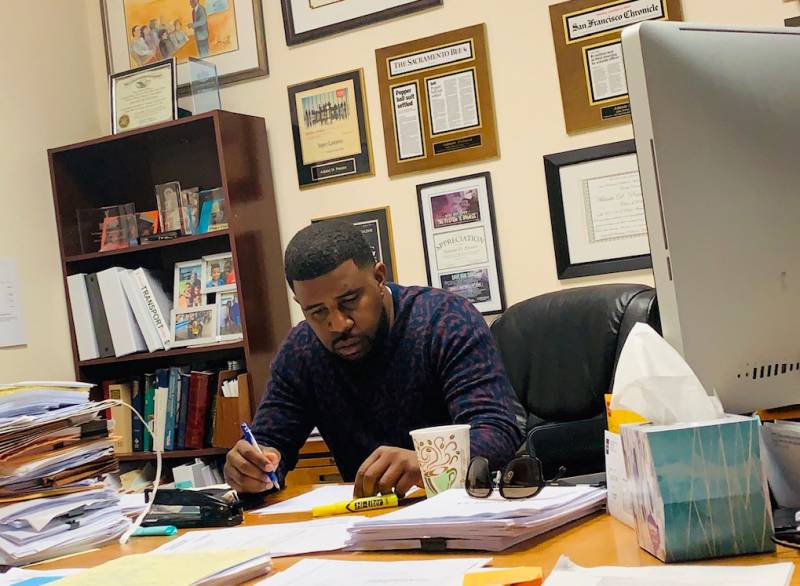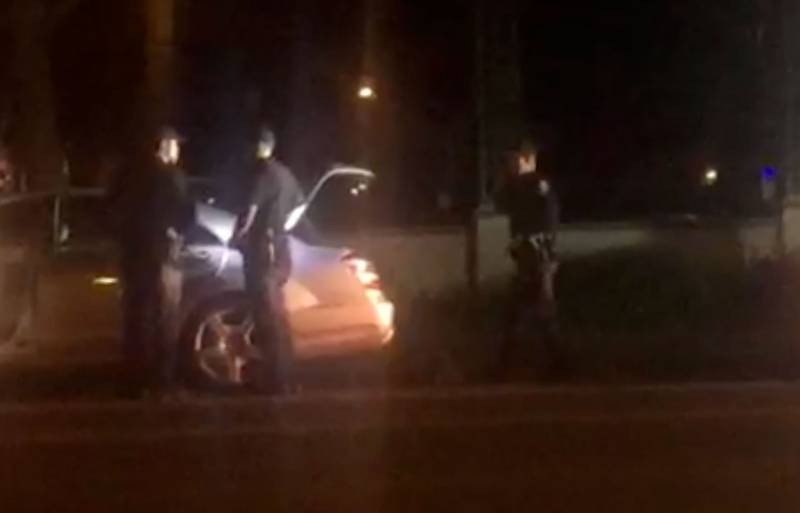Two years to the day after a traffic stop during which he says he feared for his life, an Oakland civil rights attorney filed a lawsuit against the city.
On the day after Christmas in 2017, at around 7 p.m., Adante Pointer said he was driving in a silver Mercedes-Benz down International Boulevard in San Leandro after visiting a client.
Pointer, a lawyer who works in the office of civil rights attorney John Burris, said he was trying to decide if he should pick up some food for his two kids at home when he noticed flashing lights in his rearview mirror.

